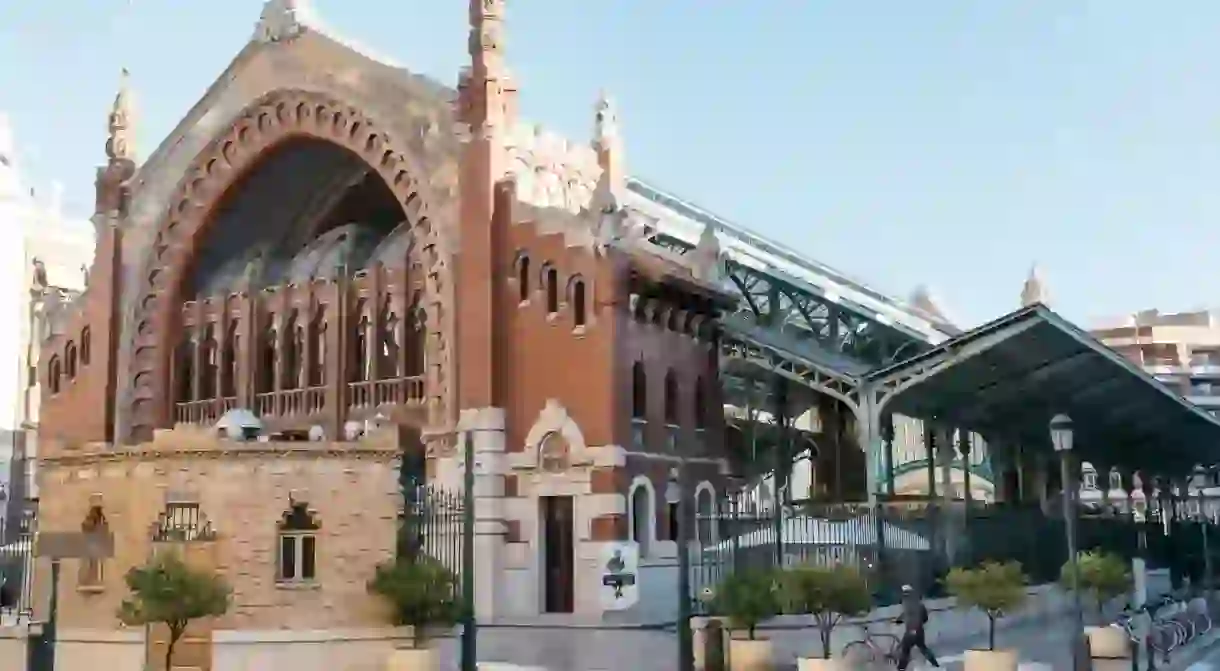The Most Outstanding Buildings in Valencia, Spain

Valencia is packed with stunning architecture. In the city centre, Romanesque structures sit comfortably alongside everything from late Gothic gargoyles to Modernist facades, while the Turia riverside is home to the famously futuristic City of Arts and Sciences complex. It’s hard to pick favourites in a place like this, but here are just a few of the impressive buildings that you really have to see for yourself.
La Lonja de la Seda
Building, Historical Landmark, Memorial, Market
One of the most important buildings in the city, the 15th century Silk Market, is a World Heritage Site and considered one of the most wonderful examples of non-religious Gothic architecture in Europe. The interior is meant to represent paradise, with its soaring columns symbolising palm trees reaching towards the sky – or roof – which was originally painted blue. Far less pleasant but equally fascinating are the stone gargoyles perched around the exterior, which are by turn pornographic, nausea-inducing or just completely bizarre.
Colón Market
Bazaar, Market

For something a bit more recent, this modernist National Monument in the city centre was originally a market for garden produce, fish and meat. The market stalls are long gone and instead the space now contains several chic cafes, a flower stall and sometimes, a stage for live music and other events. It was designed by Valencian architect Francisco Mora Berenguer and completed in 1916.
Palacio del Marqués de dos Aguas
Building, Museum

Another gem from the 15th century (although it was renovated in the 18th century) this lavishly built palace was originally home to aristocracy. It now houses the National Museum of Ceramics, with artefacts telling the story of Valencia’s history and customs. It’s worth a visit just to admire the outside of the building, decorated with incredible textures and colours.
North Train Station
Building, Train Station
This might be the first building you see when you arrive in Valencia, and it’s a special one, declared a Historical Artistic Monument in 1961, and designed by Valencian Demetrio Ribes Marco. It was completed at the beginning of the 20th century, and walking into the entrance hall feels like stepping back in time. Before its completion, trains used to run right through the main doorways of the unfinished building to their final destination at what’s now the Town Hall Square.
The Post Office
With its magnificent dome and grand interior, this could be the most elaborate Post Office you’ll ever set eyes on – and yes, you can still send letters from here. The correct name of the building is the Palacio de Comunicaciones, although the inscription on its façade has led to it being known as the Edificio de Correos y Telégrafos, or The Post and Telegraph Building. The palace was inaugurated by King Alfonso XIII and Queen Victoria Eugenia at the beginning of the last century and completed in 1923.

Jaser Cervantes / © Culture Trip
City of Arts and Sciences
Building, Cinema, Museum, Opera House, Aquarium, Concert Hall, Architectural Landmark

The work of architect Santiago Calatrava may not be quite to everyone’s taste, but whatever your opinion of it there’s no doubt this complex of futuristic buildings is becoming a well-known symbol of Valencia, and is a must-see during any visit to the city. Stroll through the gardens and choose your favourite of the buildings; if there’s time, explore inside and you’ll find interactive science exhibits, a huge aquarium, a concert hall and much more. Find out more in our guide to the City of Arts and Sciences.













